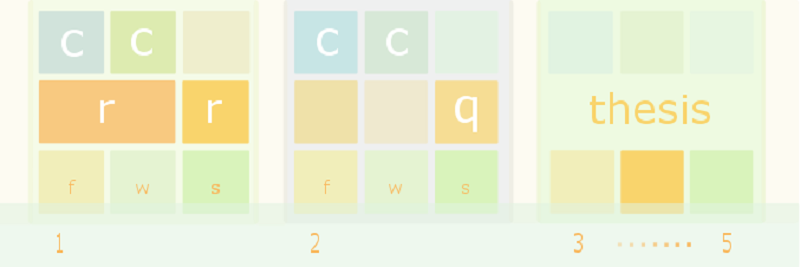
Program
Program

PhD Degree Direct-Entry
The direct-entry PhD degree (PhD U) is designed for students entering with a qualifying bachelor’s degree. It is structured as a five year doctoral program which in its first year combines coursework with intensive research providing the foundation of a well-rounded one year master’s program curriculum.
Courses
Students are required to complete five graduate elective half-courses (or equivalent 2.5 FCE). Standard elective courses are 0.5 FCE and the modular courses, also referred to as mini-courses, are 0.25 FCE.
The prescribed timeline for completion of the five graduate elective half courses equivalent is by the end of the second year. The maximum carry forward for completion in the subsequent year is 0.5 FCE. More courses may be taken for credit or audited as appropriate.
These courses are selected from the AST preparatory (1000 series) and the elective (2000 series), or specialized graduate courses (3000 series). Note that JAS1101H Astrostatistics is offered jointly with Statistics and counts as a departmental course.
A maximum of 1.0 FCE may be substituted from graduate courses offered outside of the department. Note that the course must be in a cognate discipline at the equivalent level and is subject to approval of the associate chair, graduate. The requested course should be within the context of a full study plan as related to your research goals (i.e. it should be in a complementary area). Note that some courses offered by the Physics Department are pre-approved for inclusion in your course plan. Please consult the graduate courses page for current offerings and the list of approved affinity physics courses.
Research
Students are immediately engaged in research through the required research course series AST 1501Y and AST 1500Y, each in a separate area under the supervision of a different faculty member. The research courses are weighted as full courses (1.0 FCE). AST 1501Y is completed during the fall and winter sessions of the first year, and AST 1500Y the following summer. Projects should be feasible and interesting, clearly defined, and ultimately publishable. Each research course culminates with a final report (ApJ Letter length or actual draft of paper for submission) and project presentation.
Qualifying Exams
The PhD Qualifying Examinations are comprised of two parts: general knowledge literature qualifying exams and thesis proposal. Both parts must be successfully completed in order to continue in the doctoral program.
The Literature Qualifying Exams are taken in four sections which are scheduled throughout the first two years of the program as synced with the end of fall and winter sessions. The student has the flexbility to determine the pacing. The Thesis Proposal Examination should be held in June or July of the second year after the General Knowledge Examination.
Thesis
The core of the program is a doctoral thesis embodying the results of original investigation conducted by the candidate. The thesis should constitute a significant contribution to the knowledge of the field and must be based on research conducted while registered for the PhD program.
A thesis should have a coherent topic with an introduction presenting the general theme of the research and a conclusion summarizing and integrating the major findings. Nonetheless, it may contain a collection of several papers which may be expanded or supplemented by unpublished material and scholarly notes.
PhD Degree (4-Year Track)
This track is a four-year program focused on a doctoral thesis project for students who enter with an MSc degree in Astronomy and Astrophysics or in another appropriate discipline deemed equivalent. There is no minimum course requirement in the four-year program except for courses deemed necessary by the student’s PhD supervisory committee. Students must successfully complete the two parts of the PhD qualifying examinations (general knowledge and thesis proposal) in the summer session of the first year.
MSc Degree
Note that the default point of entry for graduate studies with a qualifying bachelor’s degree is the direct-entry PhD program. Degree requirements for the MSc are similar to those for the first year of the direct-entry PhD, requiring candidates to follow an approved program that includes a minimum of three graduate elective half-courses and the research course series AST1500Y and AST1501Y. Candidates in the direct-entry PhD program who have successfully completed these requirements, and who wish to terminate their studies at that point, may request consideration for award of the MSc degree.


